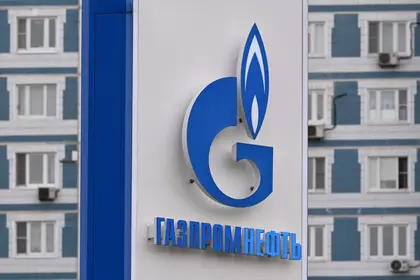Gazprom posted its biggest losses in over 20 years as its gas sales have more than halved since the outbreak of the war in Ukraine in February 2022. While the initial decrease in gas production that year only slightly decreased, analysts are suggesting the loss of European sales has dealt a blow from which the company may never recover.
A report by the Oxford Institute for Energy Studies suggests that the so-called “special military operation” resulted in an almost total collapse of the export model that had kept not only Gazprom but the whole Russian economy afloat for decades. Its attempts to find alternative export markets have effectively made it captive to customers demanding substantial discounts and special treatment in China, Kazakhstan, Uzbekistan, Turkey, and elsewhere.
JOIN US ON TELEGRAM
Follow our coverage of the war on the @Kyivpost_official.
In 2023 the Russian state-owned energy giant posted a loss of 629 billion rubles (almost $7 billion) with a drop in revenue from pre-war levels of almost 30 percent and gas sales being more than halved according to the Financial Times (FT).
According to the Moscow Times Gazprom’s debt reached a record 6.65 trillion rubles ($73.2 billion) which is greater than Russia’s 5 trillion rubles ($55 billion) National Welfare Fund.
Reuters in its analysis published last week points out that Gazprom has posted its first annual losses since President Vladimir Putin handed over the company to his friend Alexei Miller in 2001. Before that, the company had amassed huge foreign currency debts that were inflated in ruble terms following the 1998 financial crisis.

Russian Citizens Launch Campaign to Find Loved Ones Behind Front Lines
Belatedly Gazprom has been seeking other ways of making up for the fall in revenues. One way would be to raise the price of domestic supplies, which for more than 20 years have been kept artificially low by subsidies from its international revenues. Whether this will be acceptable to its political masters is yet to be answered.
The company announced via Telegram on Wednesday that it was looking for buyers for substantial real estate properties in Moscow and the surrounding region. It gave the rationale for this as having now completed the relocation of Gazprom Group to St. Petersburg, a process that was mooted and began more than a decade ago.
The Gazprom post details six major properties for sale included among them are the following:
- Office and non-residential buildings on Stroiteley and Novocheremushkinskaya Street as well as a parking lot offering 96 spaces near the company’s former main office on Strastnoi Boulevard in Moscow;
- Non-residential office premises on the 1st, 2nd, and 4th floors in the building of the Danilovsky House business center on the Novodanilovskaya embankment in Moscow;
- A production and technical base in buildings 2-5 on Obrucheva Street in Moscow;
- The Imperial Park Hotel & Spa sanatorium complex in the settlement of Pervomaiskoye, in the Rogozino village.
You can also highlight the text and press Ctrl + Enter










